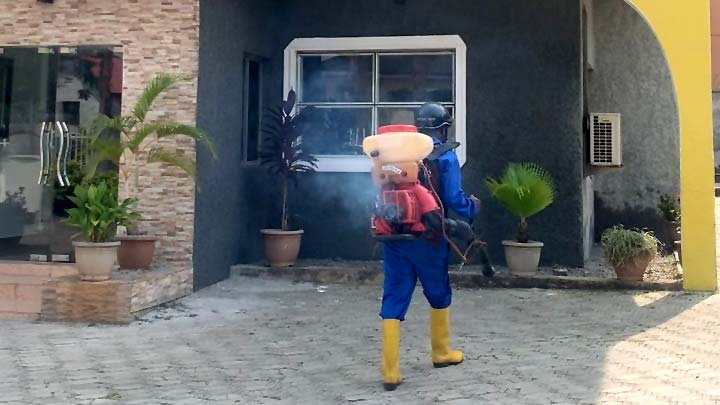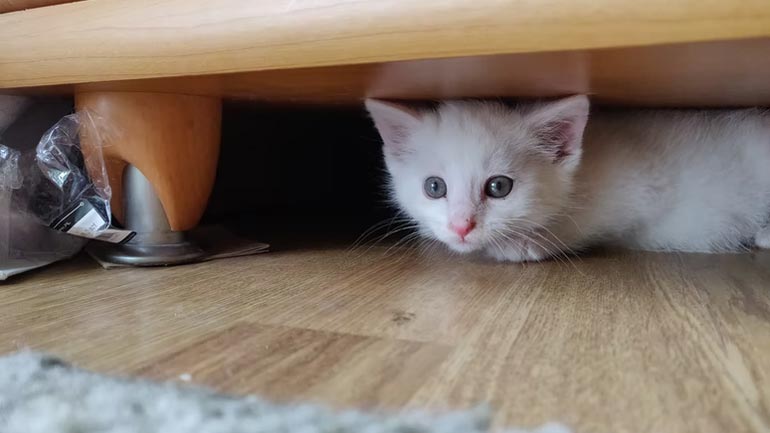
Getting rid of pests is a little more complicated than spraying a can of pesticide. In most cases, it takes a comprehensive approach.
If you want to get rid of pests yourself, you will need to clean up the house, exclude it completely, and implement a program that works for the pest you are dealing with. Pest control is a lot of hard work that takes patience.
Ready to get started? Here are 10 essential tips that work. If you need help.
1. Keep the house clean
Pests don’t necessarily appear because of mess, but it definitely helps to keep the house clean. The cleaner the house, the more likely the pests are to eat bait and walk into traps. You’ll also be less likely to attract more.
Deep clean before starting your pest control program. Get behind your appliances and storage so you get rid of food particles. Then, vacuum the floors, mop, dust, and clean the house on a regular basis. Wash the dishes every day and take out the garbage in the evening. The cleaner, the better.
2. Get rid of clutter
Pest control professionals recommend that you get rid of all unnecessary clutter. Insects, mice, and rats love dark, cluttered areas where they can hide. If you can clear your floors and create space, you’ll have an easier time setting traps and scaring the pests away. So, tidy things up around the house and get rid of what you don’t need. Move things off the floor and away from the walls.
3. Lower the humidity
Pests love humidity because it signifies that there is water nearby. Many insects also rely on the humidity for their survival. If you suspect that your home is a little on the humid side, get a dehumidifier to bring it down a notch. Optimal humidity ranges between 30 and 40% in the winter and 50 and 60% in the summer. Use the bathroom fan when taking a shower, use the kitchen exhaust fan when boiling water, and avoid leaving dirty dishes in the sink.
4. Maintain the exterior
Most pests come from outside. It is therefore a good idea that you maintain the exterior of the home. Like you would indoors, keep the walls of the home clear of clutter, like leaves, firewood, and patio furniture. Mow the lawn and keep shrubs tidy. You should also trim vines and tree branches so that the roof is out of reach. Cover the barbecue and keep garbage bins out of reach.
5. Use the right products
There is no one-size-fits-all when it comes to pests. Every species is different and requires a different approach. So, research the pest you are dealing with and use the products that are designed with that pest in mind. If you have cockroaches, for example, use pesticides for cockroaches. Read the instructions on the products very carefully and follow them for best results.
6. Set lots of traps
Pest control takes diligence. Don’t go easy on them. In many cases, pests reproduce faster than the homeowner can keep up. As one pest dies, another 5 are born. Use the pest control products you have at your disposal and don’t let up.
For example, if you are dealing with mice, set multiple traps in multiple rooms. Check them every day and re-use them when you have caught a mouse. Research where traps and baits are most effective and place them there. Be persistent in your treatment to bring the pest population down.
7. Secure the windows and doors
Not sure where the pests are coming from? It could be your front door. Add weatherstripping to the bottoms of your doors to the outside if you notice a gap underneath them. Then, seal cracks in the door frames and window frames with caulking. Check that you window screens are intact and don’t leave anything open without a screen to keep pests out.
8. Cover wall vents and seal gaps
Rodents can very easily chew their way through plastic wall vents. The little weep holes you see between bricks may also be wide enough to fit mice. Cover these with a quarter inch mesh, preferably one made of galvanized steel. You can find metal weep hole covers at the hardware store.
As for other gaps in the walls, seal these shut with mesh, caulking, or steel wool. Expanding foam is handy for bugs, but it can be chewed by rodents. Exclude your home as best you can to keep pests out permanently.
9. Be on the lookout for pests
Some bugs are brought into the house accidentally, such as bed bugs. When returning from a trip, always check your luggage before bringing it into the house. Be careful when using shared laundry services and be wary of used furniture. Inspect things carefully before you bring them home especially upholstered furniture.
10. Don’t give up
Getting rid of pests can be extremely stressful. But don’t give up! The last thing you want to do is leave a few pests behind. A handful of pests will quickly repopulate, and you will be back where you started. Be thorough and diligent in your work. If you need help, make a call to a local pest control company. A technician will inspect your property, then provide you with a treatment that works.
If you still can not protect your home or office from these pests, contact Pest Control Cobourg or another professional near you.




